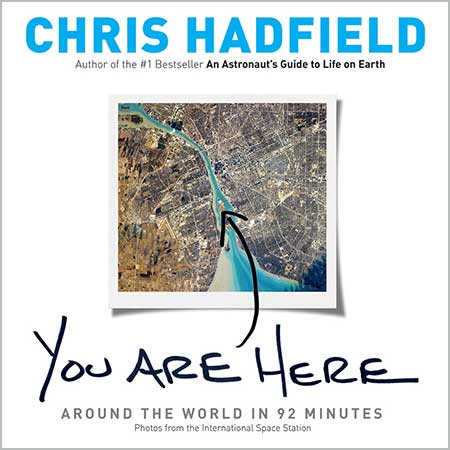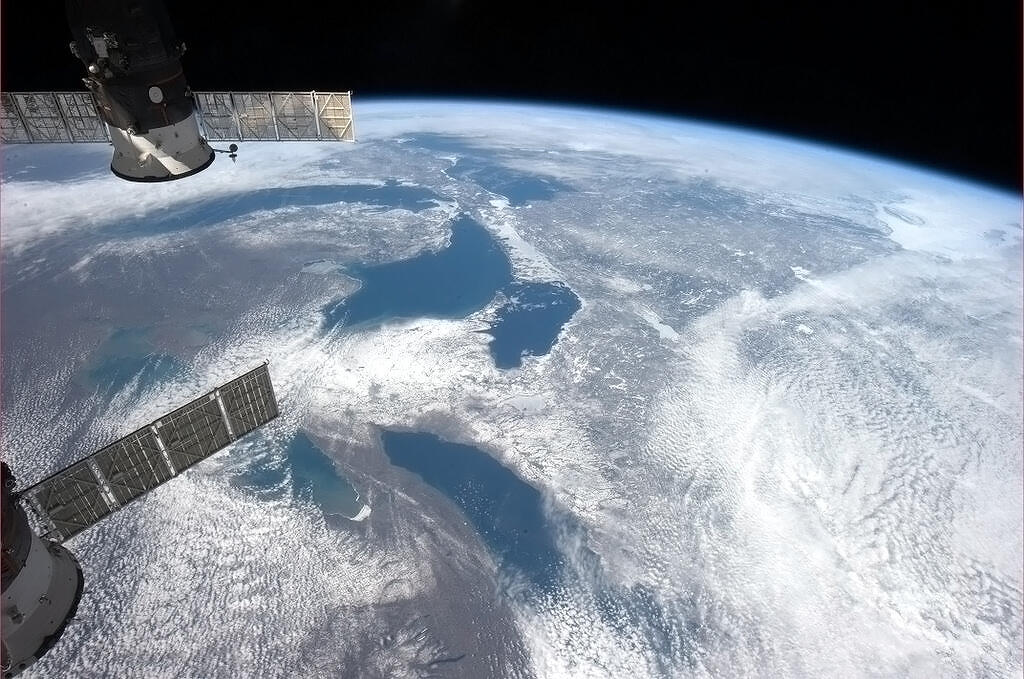Chris Hadfield’s inspiring views of planet Earth
 A new book by retired astronaut Chris Hadfield generated chatter on NCPR earlier this week, but I want to wax rhapsodic too. What’s not to like about seeing our earth as the marvel it is?
A new book by retired astronaut Chris Hadfield generated chatter on NCPR earlier this week, but I want to wax rhapsodic too. What’s not to like about seeing our earth as the marvel it is?
It helps that Hadfield is a publicist’s dream come true. NASA and Canada could not have asked for a better representative. He’s built a solid reputation as a high-achiever who is funny, charming, musical and nicely down-to-earth, despite attaining world-wide fame.
If you’d like to hear more about Hadfield and the story behind the new book, here’s a long interview with Bob McDonald, long-time host of CBC science program Quirks and Quarks. McDonald, it should be noted, is a keener on space exploration, to the point where he wrote a book on a sub-set of that action: Canadian Spacewalkers.
Hadfield wrote another acclaimed book in 2013: An Astronaut’s Guide to Life on Earth: What Going to Space Taught Me About Ingenuity, Determination and Being Prepared for Anything. Here’s what astronomer Phil Plait had to say about that book in this Slate review:
Far from being clichéd “it’s the journey, not the destination” exposition, he gives pretty solid advice on attitude, most of which runs counter to the overly-positive aphorisms you generally see.
One of my favorites, for example, was “visualize failure”. Hadfield learned that if you want to survive in space, you’d better be ready when something (or everything) goes wrong, so you’d better sweat the small stuff and figure out contingency plans for when things go south. This advice runs 180° from the “visualize success” motivational posters, which I have always found trivialize the process of achieving a goal. That kind of advice might be encouraging, but in the end doesn’t really help you actually get there. You can visualize success all you want, but when things go wrong you won’t be prepared. Far from being cynical, visualizing failure is pragmatic — it might save your life in space, but it might help you attain your own goals right here on Earth.
Another bit I liked was, “aim to be a zero”. Someone who actively makes things worse is a “-1”, and someone who actively adds value is a “+1”. But in general, walking into a new situation and trying to add value before you know the lay of the land (or worse, telling everyone how great you’ll be) can easily turn a positive value into a negative one. Initially aiming to be a zero prevents that — it’s like the doctor’s adage, “First, do no harm.” As Hadfield puts it, “You have to be competent, and prove to others you are, before you can be extraordinary. There are no shortcuts, unfortunately.” It’s very rare that someone is a +1 out of the gate, and chances are you won’t be.
I know, that’s not as inspirational as you might expect. But it’s realistic. That’s why I like it better.
The book review site Good Reads had this comment on Hadfield’s semi-autobiography from Rick
Depending on your outlook on things, this book will either make you feel like you have lived a vastly underwhelming and underachieving sort of life, full of these lost opportunities, these missed chances… or it will make you feel infinitely inspired, like you can live more and do more just be more in general, and it will serve as fuel to your rocket, to use a hackneyed analogy.
Hadfield and I are almost the exact same age. So if I make the mistake of comparing my life to his, I come away feeling very small indeed. But Hadfield philosophy would never make that mistake. No, every day (he reminds the reader) we get to make choices about what we value and how to best pursue worthy goals.
In his newest book Hadfield says something else I quite like: it would be easy to moralize about what the images have to say. But he wants the viewer to look, think and draw their own conclusions.
Lastly, if this all sounds like a giant commercial I’m OK with that because Hadfield isn’t hauling the proceeds off to the bank.
“The pictures belong to everybody. We’re donating the proceeds to the Red Cross. My motivation was not to get rich making this book. It was much more that I wanted people to see the world the way we see it from the space station and hopefully feel some of the change of perspective.”
True, some would argue the Red Cross could stand a good make-over itself. But then again, everyone can aim higher (and be happier for it) according to the Hadfield school of life.

Great Lakes from the International Space Station 2013-03-15
Public Domain
NASA/Chris Hadfield – Expedition 35/Chris Hadfield
Tags: books, canada, Chris Hadfield, earth, environment, photography, space exploration





.png)

